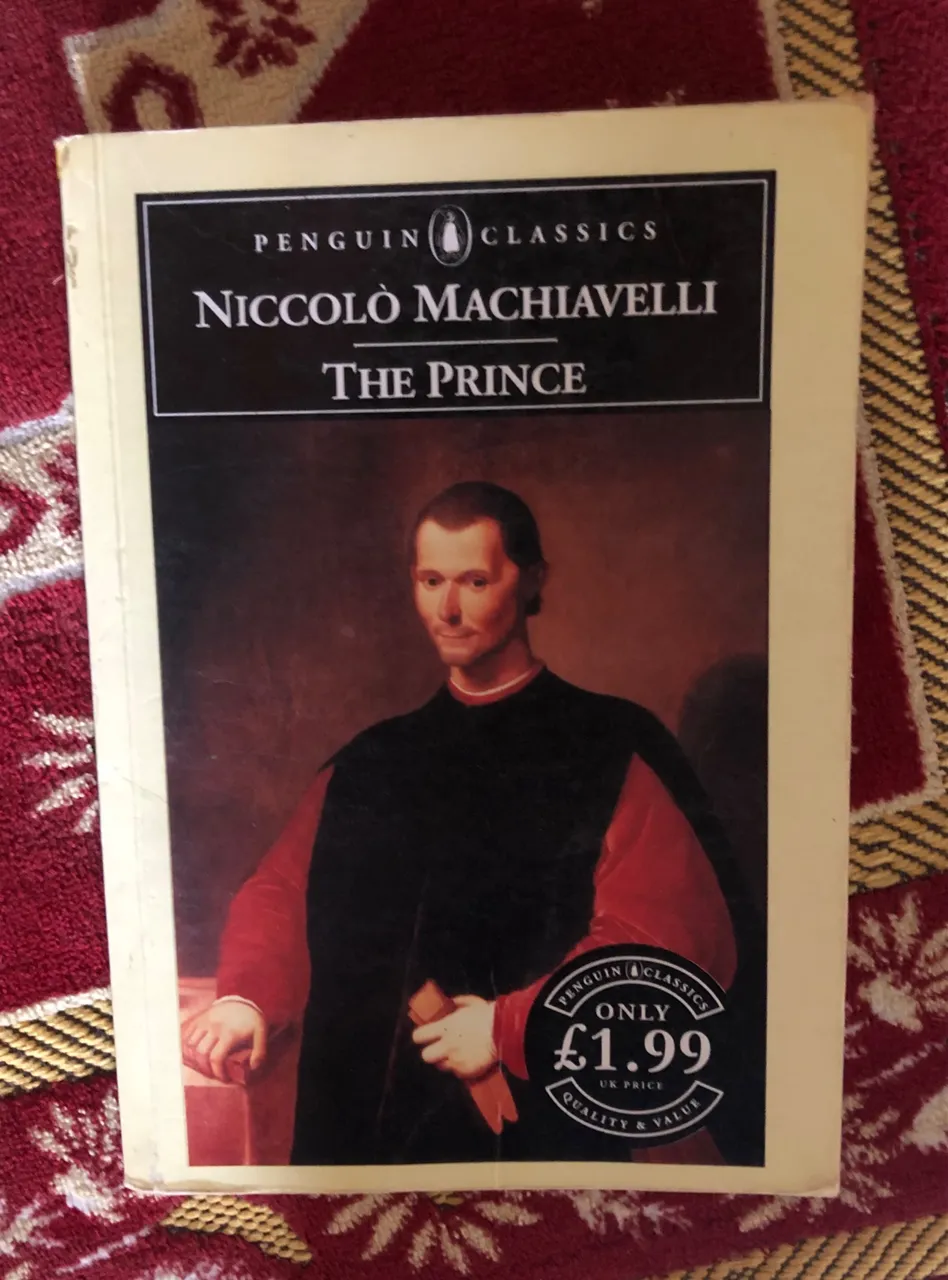Introduction
"Before anything else, I would like to greet all the kind members of this lovely community with a heartfelt Assalam-u-Alaikum."I am a photographer I read books whenever I get the chance I bought this book from the United Kingdom and found it with great difficulty And when I read this book, it touched my heart I hope that when you read this book, you will also like it very much. I got this book for two pounds.
Review this book
First of all, this book teaches us The result is important, no matter the method.
If a work is for the benefit of the state, then its method is not considered good or bad. The goal is all rules And how can we become powerful and how do leaders achieve their goals And it teaches leaders And how did great kings succeed because of their cunning? This book is not based on morality but on reality. It teaches that a ruler sometimes has to be “necessary” rather than good And it also tells us that A good leader is one who recognizes the opportunity and makes quick decisions The world changes rapidly A successful ruler is one who does not hesitate to make decisions and takes advantage of the situation There is so much written in this book that it cannot be expressed in words I hope you liked this little review of mine.
Now let's look at the title of this book.
- How many kinds of principality there are and the ways in which they are acquired
II. Hereditary principalities
III. Composite principalities
IV. Why the kingdom of Darius conquered by Alexander did not rebel against his successors after his death
v. How cities or principalities which lived under their own laws should be administered after being conquered
VI. New principalities acquired by one's own arms and prowess
VII. New principalities acquired with the help of fortune and foreign arms
VIII. Those who come to power by crime
IX. The constitutional principality
x. How the power of every principality should be measured
X1. Ecclesiastical principalities
XII. Military organization and mercenary troops
XIII. Auxiliary, composite, and native troops
xiv. How a prince should organize his militia
xv. The things for which men, and especially princes, are praised or blamed
XVI. Generosity and parsimony
Translated with an introduction by George bull
The Prince is the Bible of realpolitik.
This famous treatise on statecraft holds such power to shock 'men of goodwill' that at one time Niccolo Machiavelli (1469-1527) was identified with Satan himself. In his own turbulent times, however, Machiavelli was concerned not with lofty ideals, but with government that would last. He drew on his own experience of office under the Florentine Republic. Here he states uncompromisingly what, in some degree, most governments do but none profess to do, and the tough realities of Machiavelli's Italian are well preserved in the clear, unambiguous English of George Bull's translation.
Let's move on to the poet now.
THE PRINCE
NICCOLÒ MACHIAVELLI was born in Florence in 1469 of an old citizen family. Little is known about his life until 1498, when he was appointed secretary and Second Chancellor to the Florentine Republic. During his time of office his journeys included missions to Louis Xil and to the Emperor Maximilian; he was with Cesare Borgia in the Romagna; and after watching the Papal election of 1503 he accompanied Julius II on his first campaign of conquest. In 1507, as chancellor of the newly appointed Nove di Milizia, he organized an infantry force which fought at the capture of Pisa in 1509. Three years later it was defeated by the Holy League at Prato, the Medici returned to Florence, and Machiavelli was excluded from public life. After suffering imprisonment and torture, he retired to his farm near San Casciano, where he lived with his wife and six children and gave his time to study and writing. His works included The Prince; the Discourses on the First Decade of Livy; The Art of War; and the comedy, Mandragola, a satire on seduction. In 1520, Cardinal Giulio de' Medici secured him a commission to write a history of Florence, which he finished in 1525. After a brief return to public life, he died in 1527.
GEORGE BULL is an author and journalist who has translated six volumes for Penguin Classics: Benvenuto Cellini's Autobiography, The Book of the Courtier by Castiglione, Vasari's Lives of the Artists (two volumes), The Prince by Machiavelli and Pietro Aretino's Selected Letters. He was also Consultant Editor to the Penguin Business Library and abridged the Penguin edition of Self-Help by Samuel Smiles. After reading History at Brasenose College, Oxford, George Bull worked for the Financial Times, McGraw-Hill World News, and for the Director magazine, of which he was Editor-in-Chief until 1984. He was appointed Director of the Anglo- Japanese Economic Institute in 1986. He is the founder and publisher of the quarterly, International Minds. His books include Vatican Politics, Bid for Power (with Anthony Vice), a history of take-over bids; Renaissance Italy, a book for children; Venice: The Most Triumphant City; Inside the Vatican; a translation from the Italian of The Pilgrim: The Travels of Pietro della Valle, and Michelangelo: A Biography (Penguin, 1996). George Bull was elected a Fellow of the Royal Society of Literature in 1981 and a Vice-President of the British-Italian Society in 1994. He was awarded an OBE in the 1990 New Year's Honours List.

